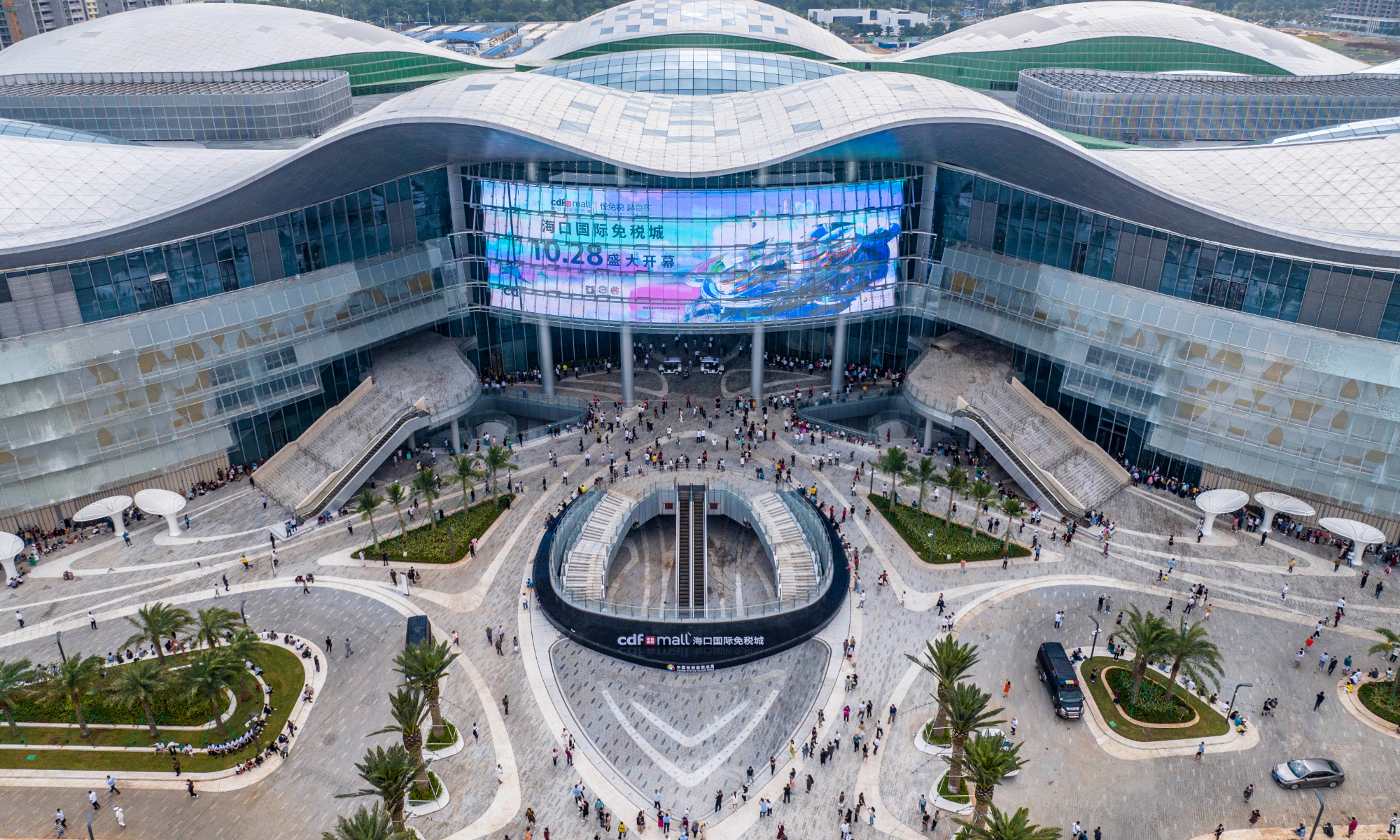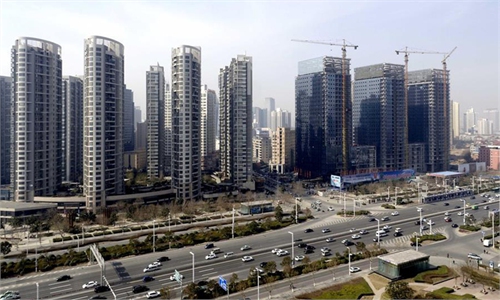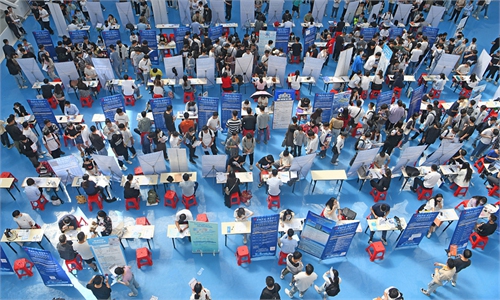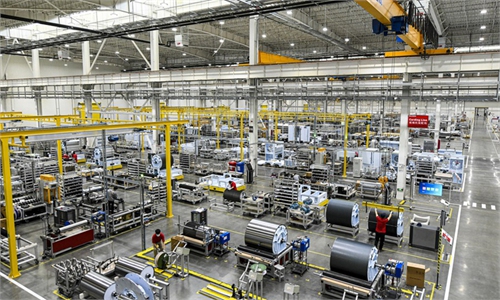Impact of COVID curbs on domestic consumption likely to persist, but it may be short-term: NBS

A view of the Haikou duty-free shopping complex in South China's Hainan Province on October 28, 2022. The complex, also the world's largest stand-alone duty-free shop with a total building area of 280,000 square meters, opens the same day. The complex features more than 800 brands. Photo: cnsphoto
The impact of the COVID-19 flare-ups on retail sales in China is likely to persist, but in general it could be “short-term”, a spokesperson from the National Bureau of Statistics (NBS) said on Tuesday.
The remarks came at a NBS press conference on Tuesday announcing the country’s economic performance for October which showed a slight increase in retail sales over the first 10 months of the year.
The country saw a slight increase in retail sales over the first 10 months this year, rising 0.6 percent against the same period last year, with online retail playing a prominent role, the NBS data showed.
Total retail sales stood at 3.6 trillion yuan ($511.9 billion) from January to October, representing a year-on-year increase of 0.6 percent. Among them, the retail sales of consumer goods other than automobiles came in at 32,370.2 billion yuan, an increase of 0.5 percent, according to NBS officials.
In October alone, total retail sales fell by 0.5 percent year-on-year, the first drop in the past five months, with catering sector revenue falling 8.1 percent.
Fu Linghui, a spokesperson for the NBS, explained that some parts of the country saw consumption dragged down by sporadic COVID-19 flare-ups, but he highlighted that the online commerce had played a supportive role in boosting retail sales.
From January to October, online retail sales stood at 10954.2 billion yuan, a year-on-year increase of 4.9 percent.
Fu said that there were many “favorable conditions” for the recovery of the consumption sector, explaining that the trend of expanding retail sales and upgrading domestic consumption structure in China will not change. And, with the gradual recovery of the national economy, it will gradually lead to the expansion of employment and rising incomes for the workers, which will help enhance consumption at the broader market.
He added that many cities are taking measures to boost auto sales, and with the widespread application of information technology, big data, and artificial intelligence, new consumption patterns are likely to continue to emerge.
“The potential for consumption growth in the coming months is huge,” Fu noted.
In an earlier interview with the Global Times, Adrian Siu, managing director of Adidas China, said that China will continue to play an integral role in contributing to its growth, and the company will attract more Chinese designers and integrate more local cultural elements into the design of its products.
Currently, Adidas operates more than 12,000 stores in China, and it plans to further expand its presence in smaller cities to tap a growing demand for sports products amongst younger consumers.



